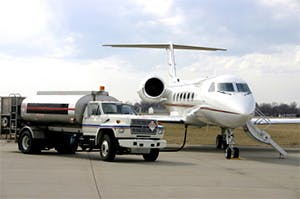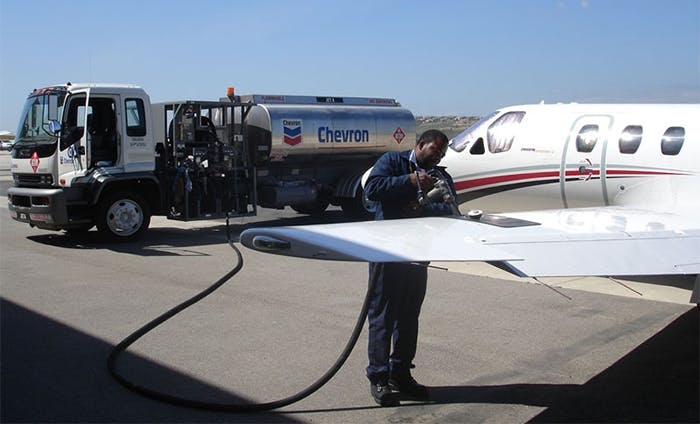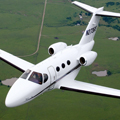How do falling fuel prices affect private jet charter pricing?

The cost of fuel is one of the key components of the overall charter price paid by the private jet customer – making up around a quarter of the total price. And with oil prices having dropped considerably over recent months, we are being asked more and more about how this is affecting charter pricing.
Short term fuel price fluctuations do not get passed onto the private jet customer, but the direction of the long term price of crude oil does have an impact. And the recent downward trend – already being felt at the pumps when we fill up our cars – is now just starting to be seen in private jet charter pricing.
How do operators choose their fuel supplier?
Just as the cost of filling up your car is considerably different from pump to pump, so fuel prices can vary for private jets. So aircraft operators can improve their overall price-competitiveness by careful planning and supplier choice.
Bigger operators, with larger fleets, will usually have a high level operational strategy for how they buy fuel – based on price and supplier relationships. In recent times it’s been common for the biggest to ‘hedge’ their fuel price over a fixed period of time – to make it easier to calculate an overall charter prices.
Smaller operators will let their pilots choose their fuel, based on their type of operations – and others may simply decide at the airport when landing and the first truck that shows up will get the sale.
How can the private jet customer benefit from reducing fuel prices?

Within the charter market, there is a great deal of competition between aircraft operators and we are now starting to see the impact of reduced oil prices filtering through.
Private jet charter is priced on a ‘pay as you go’ basis, with customers able to choose the best offer (from a different operator) each time they fly. So price-competitiveness is at its most keen and reflects changes faster than fractional ownership – where clients pay in advance for a block of flying hours from one supplier.
When customers are already committed to that single supplier, clearly there is less motivation for them to drop their prices. And in the meantime, that supplier benefits from improved margins.
Many charter operators are now reviewing their fuel buying, and their charter pricing, to make sure they are staying as competitive as possible. So charter customers will feel the benefits earlier than fractional owners.

At PrivateFly, multiple operators in our network compete to provide aircraft options and pricing for every customer’s flight – and our technology allows operators to benchmark their pricing against their competitors.
So as some operators start to reduce prices due to falling fuel prices, others must follow – or risk losing business.
If fuel prices stay at current levels or drop further, we expect to see a clear impact on pricing from our operator suppliers over the next few months – and those price drops will be passed on directly to our customers.
For the latest and most competitive charter pricing for your next itinerary, contact us or call our Flight Team (24 hours) on +44 1747 642 777.
Related content



